When “Natural” Isn’t Harmless: Doctors Warn These 7 Supplements Could Be Dangerous
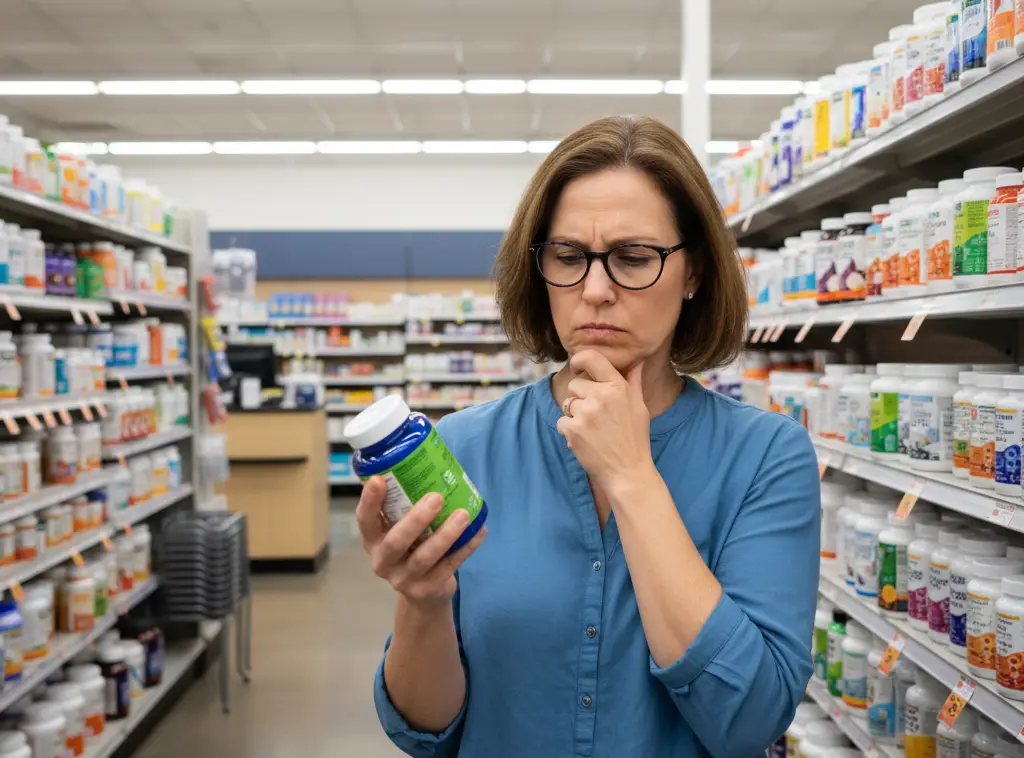
Walk down any supplement aisle in the United States, and you’ll find a rainbow of bottles promising glowing skin, more energy, sharper focus, or instant weight loss. It’s easy to think, “They’re natural, so what’s the harm?” But here’s the truth: natural doesn’t always mean safe. In fact, many doctors say some popular supplements can do more harm than good, especially when taken without medical guidance.
The supplement industry in America is booming, but it’s also loosely regulated. Unlike prescription drugs, supplements don’t need to prove safety or effectiveness before hitting store shelves. That means the burden of caution falls on you—the consumer. So before you reach for that next miracle capsule, take a look at seven supplements that doctors say might be putting your health at risk.
1. Vitamin D (When You Overdo It)
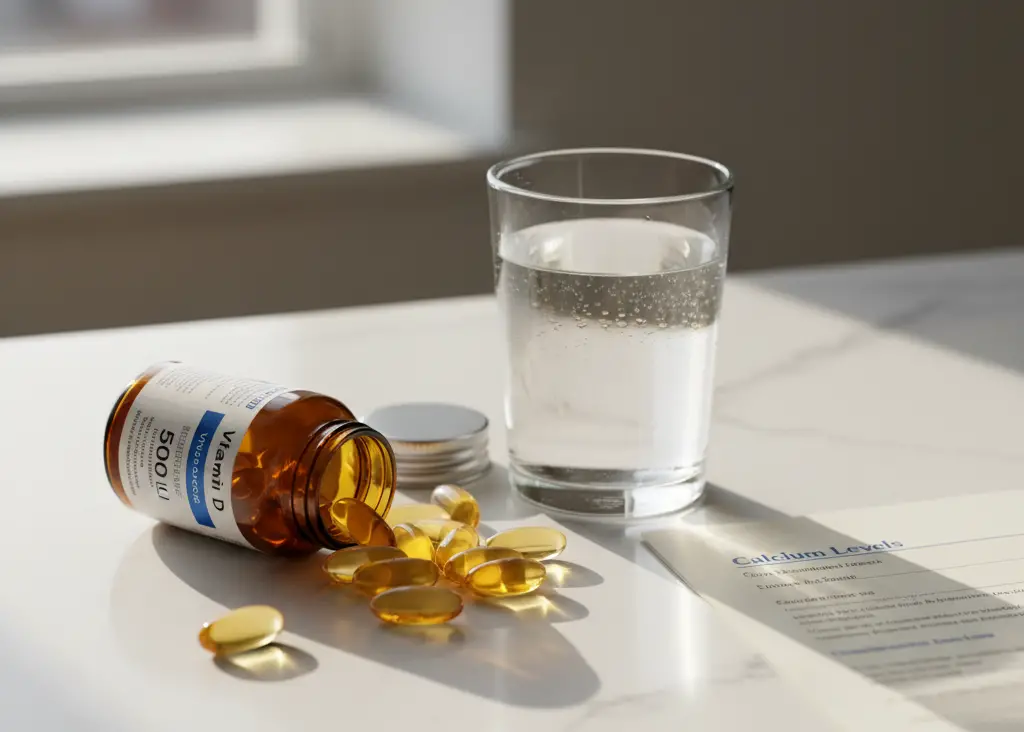
Vitamin D is essential for bone strength and immune support, but too much of it can backfire in a big way. Many Americans pop high-dose vitamin D pills daily, thinking they’ll get stronger bones or avoid colds. However, excessive doses—especially those above 4,000 IU per day—can lead to dangerously high calcium levels in the blood, resulting in nausea, weakness, and even kidney damage.
Doctors have seen real-life cases where people suffered severe complications after taking megadoses for months. The lesson here? Stick to the recommended daily allowance unless your doctor has prescribed more based on a blood test. More is not always better when it comes to vitamins, especially ones that stay in your system for long periods.
2. Fat-Soluble Vitamins A and E

There’s a common misconception that if a little bit of something is good, then a lot must be great. Unfortunately, fat-soluble vitamins like A and E don’t work that way. Unlike vitamin C or B vitamins, which flush out in your urine, these vitamins accumulate in your body and can reach toxic levels.
Too much vitamin A has been linked to headaches, dizziness, and even bone loss. Meanwhile, large doses of vitamin E can increase the risk of bleeding and may interfere with certain medications such as blood thinners. Many “anti-aging” or “immune booster” supplements on store shelves contain doses well beyond what’s safe.
If you already eat a balanced diet or take a multivitamin, chances are you’re getting all the vitamin A and E your body needs. Adding extra on top of that can do more harm than good.
3. Iron (If You’re Not Deficient)
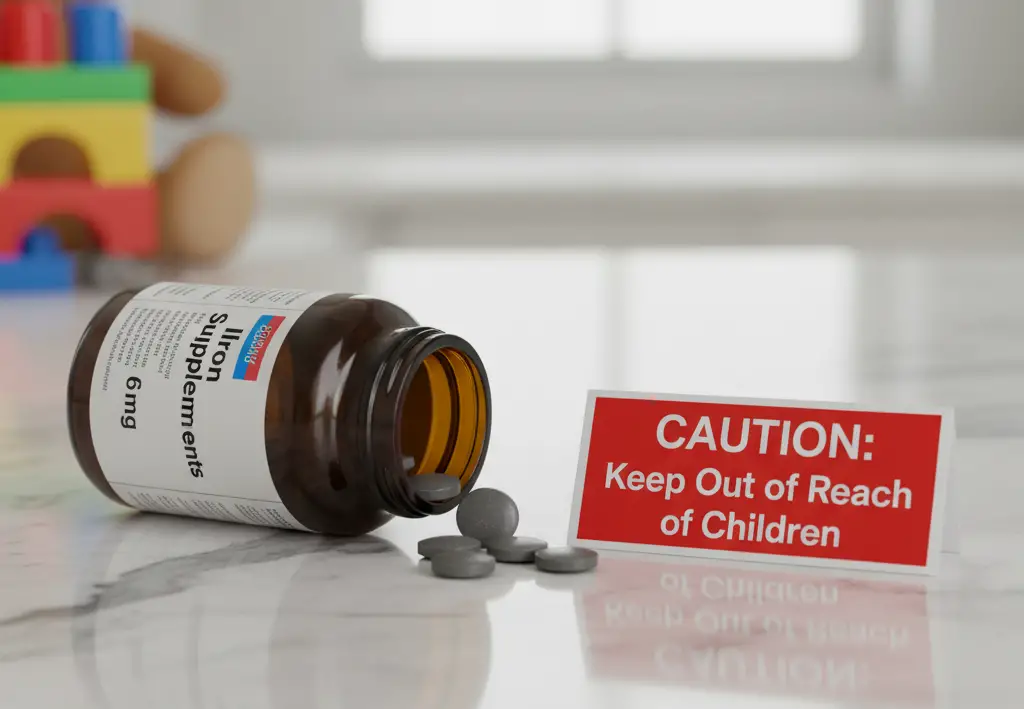
Iron supplements can be lifesaving for people with diagnosed anemia—but for everyone else, they can be downright dangerous. Your body doesn’t have an easy way to get rid of excess iron, so overdoing it can lead to iron overload. This condition can cause fatigue, stomach pain, and in severe cases, organ damage.
Iron poisoning is also one of the leading causes of accidental poisoning in young children. Even a few adult-strength tablets can be fatal for a small child. So unless your doctor has confirmed you have low iron levels, it’s best to skip the extra supplements.
And if you do need iron, be sure to store it safely away from curious little hands.
4. Garcinia Cambogia (and Other Weight-Loss “Miracles”)
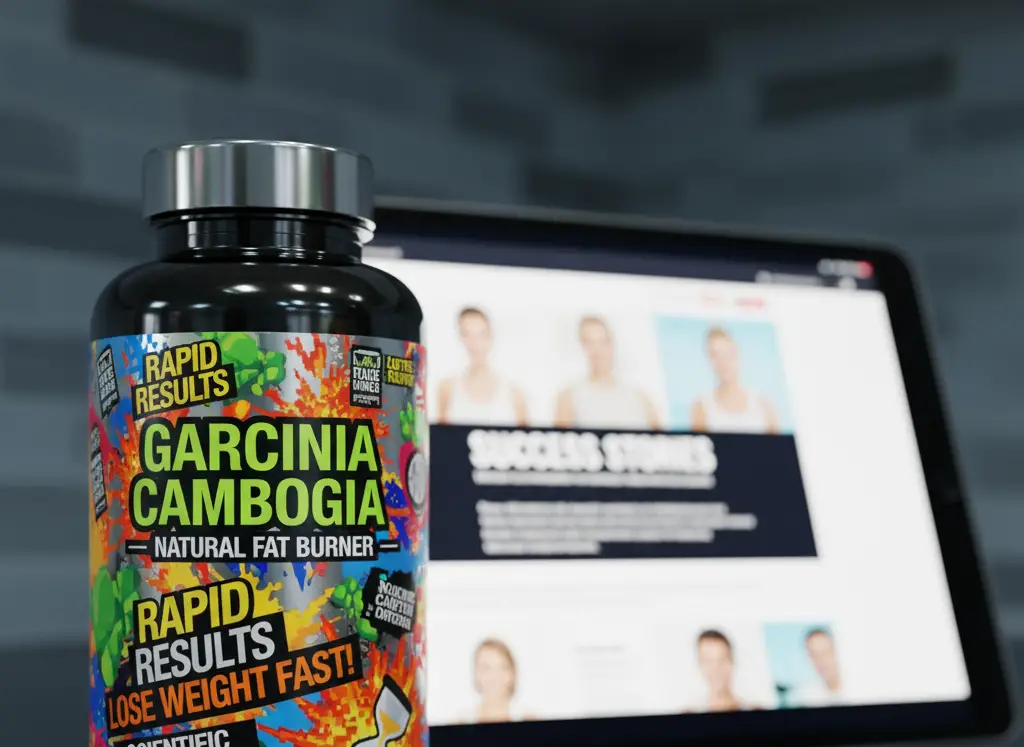
Garcinia cambogia is often promoted as a “natural fat burner,” but doctors warn it can be anything but safe. This tropical fruit extract once skyrocketed in popularity after being featured on TV as a weight-loss aid. However, several reports have linked it to severe liver damage, with some people requiring transplants after extended use.
The problem is that weight-loss supplements are some of the least regulated products in the industry. They’re often mixed with multiple ingredients, hidden stimulants, or contaminants that amplify the risks. Even if the label lists garcinia cambogia as the main ingredient, there’s no guarantee what’s really inside that capsule.
If a product promises dramatic results without changing your diet or exercise, that’s a red flag. Sustainable weight loss doesn’t come from a pill—it comes from healthy habits.
5. Herbal Supplements That Stress the Liver (Like Turmeric, Green Tea Extract, and Ashwagandha)
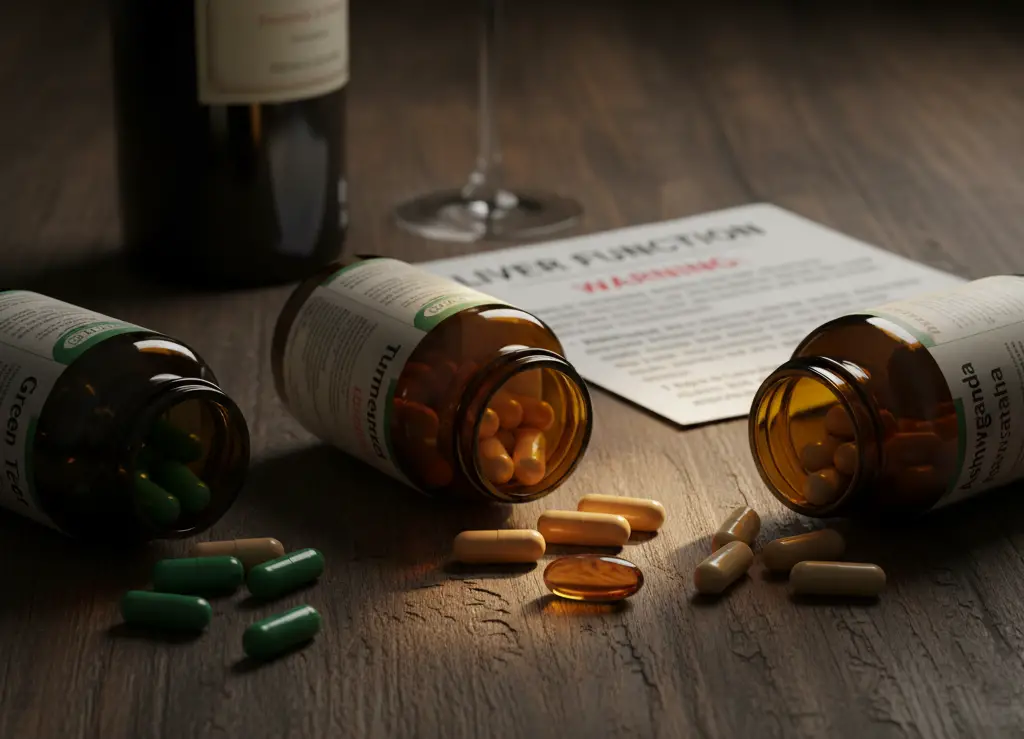
Herbal doesn’t always mean harmless. While herbs like turmeric, green tea extract, and ashwagandha have gained popularity for their supposed healing powers, studies show they can also stress your liver when taken in concentrated supplement form.
In fact, millions of Americans take herbal products that doctors say could cause liver toxicity, especially when combined with alcohol or medications. Even turmeric, often celebrated for its anti-inflammatory effects, has been linked to liver injury in some people taking high-dose capsules.
If you enjoy green tea or turmeric in your diet, that’s generally fine. But if you’re considering supplements, talk to your healthcare provider first—especially if you already take other medications or have any liver concerns.
6. Mixing Multiple Supplements (Without Guidance)
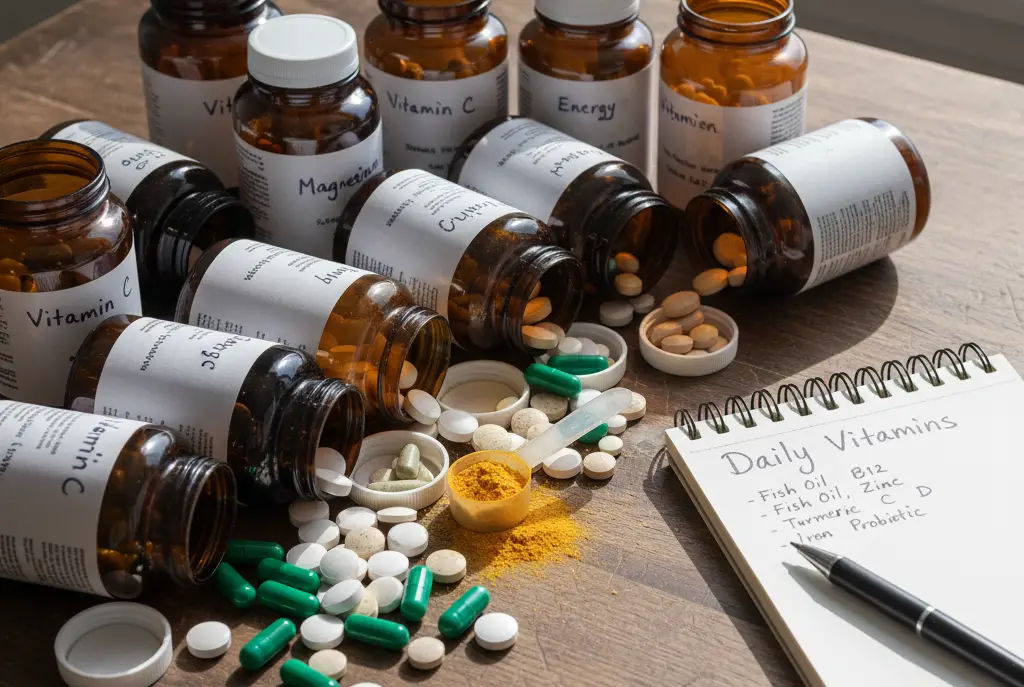
Sometimes, the danger isn’t one supplement by itself—it’s the cocktail of them. Taking several vitamins or herbal formulas at once can lead to harmful interactions or nutrient imbalances. For example, calcium and iron compete for absorption, while too much zinc can deplete your copper levels.
The same goes for combining herbal supplements with prescription medications. Things like fish oil, garlic, and ginkgo can all increase bleeding risks if you’re also on blood thinners. The tricky part is that many people assume supplements are safe to mix because they’re over-the-counter.
A good rule of thumb: if you take more than one supplement, write down what you’re using and bring the list to your doctor or pharmacist. It’s a simple step that could prevent a dangerous reaction.
7. Supplements That Promise Too Much
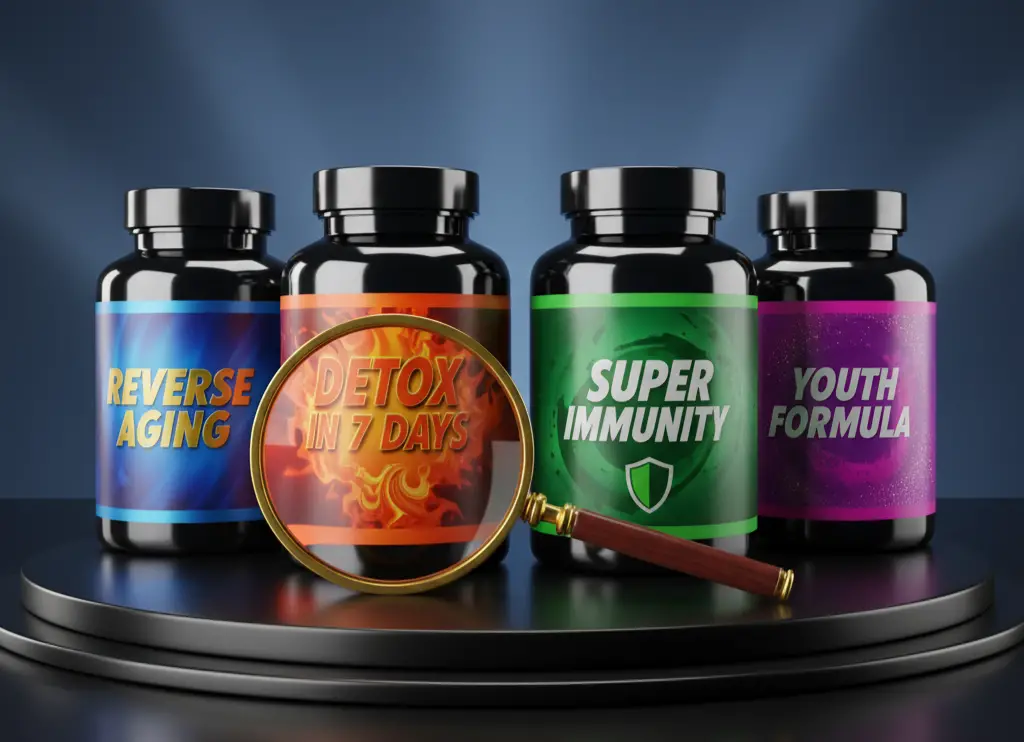
The biggest red flag in the supplement world isn’t a single ingredient—it’s the marketing. Be skeptical of any product that claims to “reverse aging,” “detox your body,” or “supercharge your immune system overnight.” These are the buzzwords of an industry that thrives on hype rather than evidence.
Unlike medications, supplements in the United States aren’t required to undergo strict safety or effectiveness testing before they’re sold. That means what you see on the label might not even match what’s inside the bottle. Independent testing has found that some supplements contain undeclared drugs, heavy metals, or ingredients in doses far higher than advertised.
Doctors warn that if something sounds too good to be true, it probably is. Always research brands, look for third-party testing seals like NSF or USP, and stick with reputable retailers.
Final Thoughts

Supplements can absolutely play a positive role in supporting your health, but they are not a magic fix or a shortcut to feeling better. In reality, many popular wellness products can cause more harm than good when taken in excess or without professional guidance. Before adding anything new to your routine, it is always wise to get tested and talk to your doctor about what your body truly needs.
Remember, more is not always better—sticking to recommended doses is the safest way to go. Take time to read labels carefully and choose reputable brands that undergo third-party testing to ensure what’s inside matches what’s promised. Be skeptical of products that make bold claims about overnight transformations or miracle detox effects; those are usually signs of clever marketing, not science.
A healthy lifestyle still begins with real food, consistent habits, and medical advice, not with a pill or powder. Supplements should fill nutritional gaps, not replace a balanced diet. Your health is too valuable to risk on unverified promises, so the next time you find yourself tempted by the latest wellness trend, pause and ask, “Do I really need this, or am I being sold a shortcut?”
When in doubt, let your doctor—not the label—be your guide. Because when it comes to your well-being, the best supplement of all is good, informed decision-making.
Leave a Reply